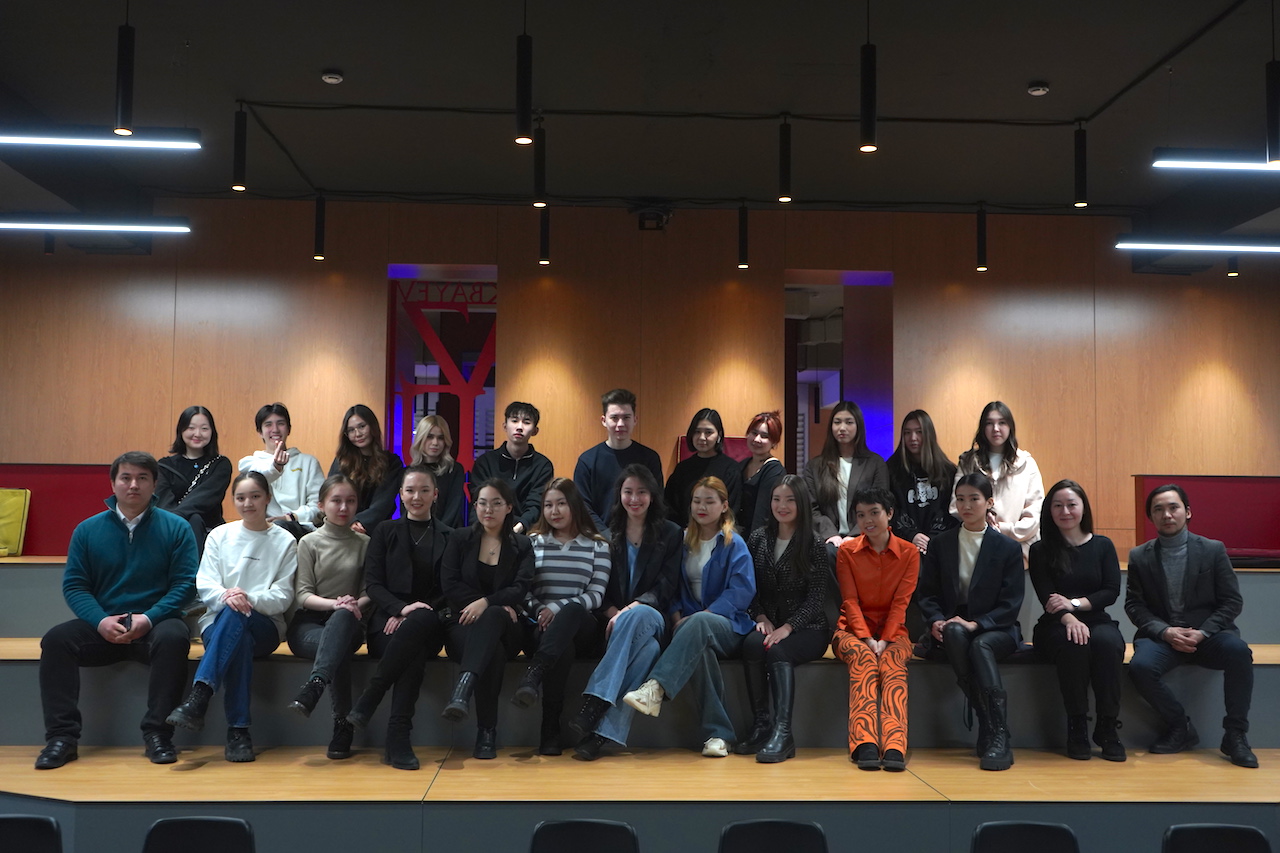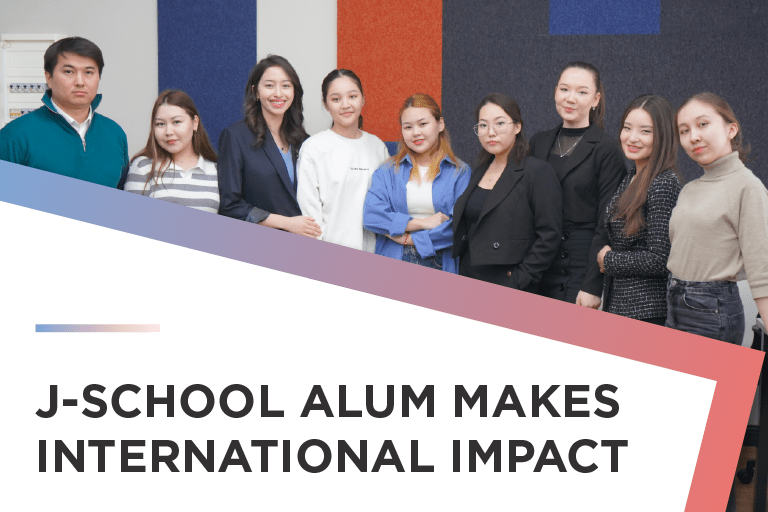For Zholdas Orisbayev, journalism is more than just a study or profession. His passion for the field and creating a “real-world of journalism” has ignited his career as editor-in-chief of KAZGUU University’s first independent news outlet, The KAZGUU Newsroom located in Astana, Kazakhstan.
Breaking ground
Orisbayev graduated from MSU with a master’s in journalism in 2021. As a former correspondent for Capital News Service (CNS), hosted on MSU’s Spartan Newsroom and an award-winning program of the School of Journalism, Orisbayev wanted to create a similar outlet for students of KAZGUU University where they can gain effective and valuable journalism skills in a professional setting. Students can then make use of these journalism skills to freely investigate and report on political, economic and social issues important to them.
Orisbayev started his initial plans for the project in November of 2022. As a part-time journalism instructor at KAZGUU, he noticed that his junior and senior students didn’t quite have the practical journalism skills needed to thrive in a professional setting. With his own experience as a correspondent for CNS, Orisbayev proposed implementing a similar model to KAZGUU’s school administration. The administration approved the idea and the KAZGUU Newsroom entered its inaugural semester this year.
David Poulson, the instructor of fall CNS classes and senior associate director of the Knight Center for Environmental Journalism had Orisbayev in his class when the presence of COVID-19 made reporting increasingly difficult. Poulson praised Orisbayev’s work ethic during this time period, explaining how he is a serious reporter who doesn’t shy away from challenges. Poulson was happy to learn that CNS had such a great impact on Orisbayev.
“I am pleased and proud to learn that CNS sparked the idea. But starting something like this takes a tremendous amount of work and vision. That's all Zholdas,” said Poulson.
Eric Freedman, the director of CNS and a professor in the Knight Center, has his own ties to Kazakhstan as he started traveling to Central Asia in 2002 with the Fulbright program. During his travels, he teaches and collaborates on research projects with faculty at other universities in the region. As a result, he was very supportive of Orisbayev’s project.
“It’s an opportunity for MSU to get involved in the region and to develop long-term relationships,” said Freedman. “There aren’t a huge number of Western universities doing that in the area.”
Taking the lead and paving the way
Kazakhstan itself is a bilingual country where people speak Kazakh and/or Russian — and Orisbayev wanted to create a news outlet that was accessible to both groups of speakers. Thus, he launched the project in both languages.
“I am overseeing the Kazakh language newsroom and have a corrections editor/proofreader to review weekly written drafts,” said Orisbayev. “I have 9 students in my sophomore class. My colleague, Aigul Zhamalova, manages the Russian language newsroom (with the help of a Russian language corrections editor/proofreader) and has over 20 students in their newsroom.”

As the pioneer of this project, Orisbayev solidified a verbal agreement with KAZGUU’s administration that says there is to be no censorship of what students write about. This provides students with complete editorial independence in their writing.
“This is a major accomplishment in an authoritarian state where most media outlets and newsmakers are controlled by the Akorda, the presidential administration of Kazakhstan.”
Even though students have a lot of freedom in their journalism process, Orisbayev still encourages students as much as he can to report and write on issues with a strong sense of morality.
“My objective is to educate journalism students on the Code of Ethics to prioritize their journalism principles over money, since we have so many journalists who write pro-government blogs and articles for the money.”
Aigul Zhamalova, the Russian-language curator for the Newsroom, also notes how important it is to teach students not only how to flesh out important topics, but how to do it responsibly.
“As a journalist who values professional ethics and responsible reporting, I aim to contribute to the development of a new generation of skilled and ethical journalists in the local media industry,” said Zhamalova.
Making an impact
Freedman notes that projects like these that operate on an international scale can create opportunities to set the standard and provide valuable educational and research opportunities to students.
“We can pioneer ideas and approaches to learning, teaching and research; and use our expertise to advise what might work and what might not work — and provide back-up support for our counterparts.”
Poulson comments on how creating these teaching/research models and watching them get implemented into curricula overseas is an incredible achievement for CNS and the college.
“To learn that the model was copied from the MSU J-School for use by a country where journalists struggle for press freedom is amazing,” said Poulson. “The impact of CNS has always been significant in terms of training reporters who go elsewhere and in simply reporting news that wouldn’t otherwise be covered.”
Freedman agrees that the ability to bring ideas like Orisbayev’s to life is a testament to the willpower of ComArtSci students and the impact of the college as a whole.
“When we have somebody who is willing to essentially pioneer in their own country using what they learned here, that to me is a success.”
Even though they are in the initial stages of their work, Orisbayev describes how impressed he is by his students’ journalism skills and the issues they choose to report on about the region so far.
“One student delved into a factory building in the old town part of Astana that residents reported as emitting a chemical odor,” said Orisbayev. “Our reporter located the owner and investigated the potential danger to the surrounding community. Later, the Ministry of Ecology and Natural Resources confirmed the need for further investigation.”
With such diligent reporting like this story, Orisbayev has firm confidence in the impact the KAZGUU Newsroom will have on the students, the university and the region.
“I view journalism as a mission, not just a profession. Authentic journalism has the power to improve society.”
By Casey Halas
